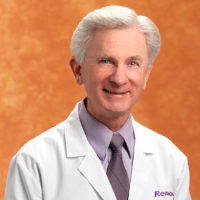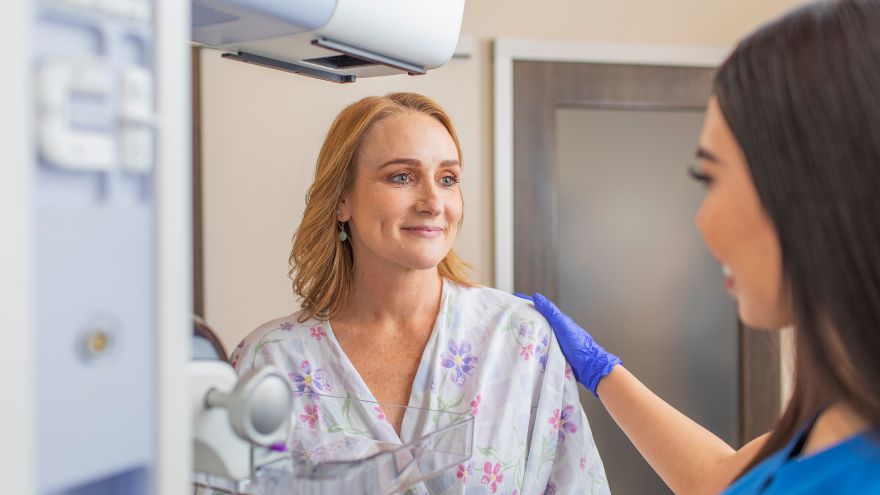Search
Results for 'doctors'
Clear-
How You Can be a COVID-19 Vaccine Ambassador
We get it – the entire world has been overwhelmed with COVID-19 vaccine information, questions and celebrations around vaccines developed to combat COVID-19 induring the past several months. It’s hard to know where to start in digesting all this news and information. But one thing is clear: healthcare experts agree that the authorized COVID-19 vaccines are safe, effective and recommended to help end this pandemic. If you are passionate about stepping up in your community to encourage the vaccination efforts, we’re offering a few ideas on how you can be an ambassador. Find the Facts Content on the vaccine is abundant, but and there’s a few resources that we can all rely on to help digest the information: The Centers for Disease Control (CDC) updates its website content around the vaccine regularly, and also offerings information in Spanish. Health departments across the U.S. are leading the way in distribution logistics planning, and partnering with other providers, like such as hospitals and pharmacies, to distribute give people doses. Their websites are great resources to understand options where you live. Locally, check out washoecounty.gov/health/programs-and-services/environmental-health/covid-19-guidance for vaccine updates in Washoe County. Many providers like Renown Health and other providers are sharing content around their recommendations for the vaccine. Get answers about the vaccine types from one of our pharmacists, read common concerns addressed by experts and view videos from many doctors and other specialists on our YouTube Channel.
Read More About How You Can be a COVID-19 Vaccine Ambassador
-
Happy and Healthy Life After Heart Valve Replacement Surgery
Watch what happens when a family’s matriarch finds out she has to have heart valve replacement surgery. Thanks to supportive cardiac care, she is now back to health and enjoying her extended family with a healthy heart. Marilyn O’Gorman has a full heart full of love: Just ask her six children, 15 grandchildren and six great grandchildren. However, in 2009, tests showed that same heart had medical issues. So her close family was by her side when she underwent heart valve replacement surgery. O’Gorman says her heart doctor, Athan Roumanas, MD, FACS, put her at ease about the surgery. “You’re very nervous — you’re scared,” says O’Gorman. “You don’t know: Are you going to come out of it? Is it going to work?” Heart Valve Replacement Surgery Comes with an Unexpected Question O’Gorman was asked to choose whether she’d prefer a pig or a cow valve — ultimately inquiring of Dr. Roumanas which one he’d choose for his own mother. “And he said, ‘Well, probably pig,'” she recalls. “And I said, ‘OK, I’ll oink for you.’ And that’s how I got that, and he did a wonderful job.” O’Gorman continues her care at the Renown Institute for Heart and Vascular Health, so she can stay heart healthy and spend her free time with the many generations of family in her life.
Read More About Happy and Healthy Life After Heart Valve Replacement Surgery
-
What is a High-Risk Pregnancy?
You can still have a healthy pregnancy and baby if your pregnancy is high-risk. Learn what steps you can take to give your baby the best start possible. A “high-risk” pregnancy is one that threatens the health or life of the mother or her fetus. Women with high-risk pregnancies should receive care health care specialists to ensure the best possible outcomes. Some examples of a high-risk pregnancy include: Maternal age, women 35 and higher or 17 and younger Lifestyle choices, including smoking, drinking alcohol and illegal controlled substances Existing medical history, chronic hypertension, diabetes and breathing issues Multiple gestation, pregnancy with twins or triplets Overweight and underweight Remember: You can still have a healthy pregnancy and baby if your pregnancy is high-risk. Some ways to promote a healthy pregnancy: Schedule an appointment with your OBGYN Eat a balanced diet Avoid substances Prenatal care Healthy weight gain Reduce stress Exercise Pregnancy & Childbirth at Renown | 775-982-KIDS (5437) When you are expecting a new baby, you can depend on Renown Children’s Hospital for all your mom and baby healthcare needs. We can help you find the right doctor and tell you what to expect during your stay. We offer childbirth education classes and tours to help you prepare. Be sure to check out our virtual tours of our Labor Assessment Area.
-
Bringing a Public Health Perspective to Healthcare
There are many lenses through which to view health. As you would expect, medical providers typically focus on the health of individual patients. For example, doctors consider a person’s symptoms, their current lifestyle, their past medical history, and their family’s history to diagnose medical conditions and recommend treatments. The Public Health Perspective Public health professionals look beyond the health of an individual and instead focus on the health of an entire community or population of people. They strive to achieve “the greatest good for the greatest number.” As the CEO of a health system, I feel fortunate to have education and training in both medicine and public health. As Renown Health’s leader, it is my responsibility to care for the people and communities we serve. That involves bringing world-class staff and innovative medical care to northern Nevada. We also focus on prevention by looking for ways to improve health outside of our facilities. That means partnering with local organizations to address the social, economic, and environmental factors that shape our health. Or working with local government to create policies that help to prevent disease and injury. In order to make a genuine and long-lasting impact on health, we must foster a community that helps our neighbors live well. Public health is especially important during times of crisis, such as the COVID-19 pandemic that we’re experiencing now. During these times, health systems must be able to swiftly shift focus from prioritizing the needs of individual patients to considering what is best for our local population. For example, we may need to temporarily limit hospital visitors or educate the public about how to socially distance in order to stop the spread of disease. Being prepared to make this shift and having strong relationships with our local health department and community organizations help us better serve the public. In both good times and bad, I am thankful that my public health background provides me with the perspective to look beyond our health system and embrace the health our community.
Read More About Bringing a Public Health Perspective to Healthcare
-
5 Tips to Keep Your Brain Nimble
Not all memory loss is inevitable — there are several things you can do to keep your brain nimble at any age. Find out how brain exercises, a healthy diet and daily movement can improve your brain’s focus. A modest decline in memory is to be expected as we get older. We forget someone’s name but recall it later. We find the need to make lists to remember things more pressing. Manageable? Yes. But frustrating nonetheless. The good news is we don’t have to sit back and succumb to age-related memory loss. There are concrete things we can do at any age to keep our brains sharp, nimble and engaged. Five Simple Brain Exercises 1. Volunteer or participate in meaningful activities outside of work. This engages your brain and emotions in a healthy, positive way. 2. Engage in moderate, regular exercise to tone body and mind. Overall good health is critical to brain health. Even casual daily walking can boost your mental abilities. 3. Eat the rainbow. Choose to include plenty of colorful fruits and veggies and ease up on processed foods in your daily diet. The proper nutrients can improve circulation to your brain, which will amp up your cognitive abilities. Consult your doctor for the best diet and supplement choices for your specific health needs 4. Get a blood test to determine your body’s hormonal and nutrient levels. Specific hormones and nutrients can affect cognition. Be mindful of your cholesterol levels, and if you take cholesterol medications, such as statin drugs, be aware they can also affect your mental faculties. 5. Engage in brain activities like reading, crossword puzzles, Sudoku and Trivial Pursuit. These types of activities can improve your brain’s focus and concentration and — most important — test your memory and general knowledge. You derive more benefit by engaging in these activities consistently for short amounts of time, so make a weekly appointment with yourself to build brainpower.
-
Addressing the Threat of Workplace Violence in Hospitals
In recent years, workplace violence against healthcare workers has been on the rise. According to the Occupational Safety and Health Administration (OSHA), about 75 percent of nearly 25,000 reported annual workplace assaults occur in healthcare and social service settings. Those who don’t work in healthcare may be surprised to learn that violent altercations are so common in our field. Hospital settings can create fear and stress for patients and their families. Pain, mind-altering medications and drugs, and difficult prognoses can amplify these feelings. While inappropriate responses may be understandable, violence cannot be tolerated. As the leader of a health system, protecting our employees is an issue that I take seriously. Reporting Workplace Violence Unfortunately, sometimes employees don’t report dangerous incidents fearing they might be blamed, or not realizing it’s a reportable offense. At Renown Health, we take these events seriously. We have clear, mandatory policies and protocols for reporting and investigating violent incidents. Each incident is investigated to ensure follow through and accountability. We also teach de-escalation skills to our hospital security teams, clinicians, and other frontline employees. As an added layer of protection, Renown Health has a first-rate security team that closely monitors activity on our campuses, addressing potential issues before they escalate. Our organization values our partnerships with community organizations including local law enforcement agencies like the Washoe County Sheriff’s Office and the Reno Police Department. Renown Health maintains a close relationship with these partners, and we alert them when our care teams experience an increase in violent incidents. I also recognize that workplace violence is a national problem that demands collaborative solutions. That’s why I am also proud to serve as a member of the American Hospital Association’s Hospitals Against Violence Advisory Committee. Nurses, doctors, paramedics, and frontline health workers care for us every day. It’s our responsibility to support them by ensuring they feel safe at work.
Read More About Addressing the Threat of Workplace Violence in Hospitals
-
Three Things to Know About the Enhanced Benefits of Renown’s New Medicare Program
Renown Health recently announced that it has contracted with the Centers for Medicare and Medicaid Services (CMS) on a new program that offers enhanced Medicare benefits for Medicare beneficiaries. This new direct contracting Medicare program is designed specifically for patients with Original Medicare. Here are three things to know about Renown’s new program: The goal of the program is to help care providers work together to improve patients’ health by better coordinating patient care and reducing costs. Medicare beneficiaries who choose to sign up will have peace of mind knowing that they are in a program that ensures coordinated care along with potential cost-sharing assistance for chronic care management. Signing up for this program is easy – and it does not affect your existing Medicare benefits in any way. Simply click the button below, select either your current Renown Health or Geriatric Specialty Care provider from the drop down menu, complete the form and click “Submit Form.” It only takes a minute or two to fill out the form. You will be asked to provide the name of your primary care provider and be sure have your red, white, and blue Medicare card handy. Sign Up for Renown’s Enhanced Medicare Benefit Program Voluntary Alignment Sign Up Note: Participation in this program is voluntary. If you choose to sign up, your benefits will NOT change, and you can visit any doctor, other health care professional, or hospital. Learn more about Renown’s Direct Contracting Entity for Medicare Beneficiaries here. The statements contained in this document are solely those of the authors and do not necessarily reflect the views or policies of CMS. The authors assume responsibility for the accuracy and completeness of the information contained in this document.
Read More About Three Things to Know About the Enhanced Benefits of Renown’s New Medicare Program
-
When to Seek Care for Abdominal Pain
Abdominal pain is one of the most common complaints that brings individuals to the emergency room. We spoke with emergency physician Bret Frey, MD, to ask about when and where to seek care for abdominal pain. Dr. Frey advises that any time you feel something is developing inside your body that is substantially different from what is normal for you, understand that something is wrong. He further explains that warning signs of an acute medical situation include fever, vomiting or a rapid change in function and ability to move due to pain. These symptoms indicate that one needs to be evaluated by a medical professional. This evaluation will include the care team conducting an examination and asking a series of questions to determine if additional diagnostics, such as lab work or imaging, are needed. Be prepared to discuss where the pain is and what it feels like, in addition to how long it’s been bothering you and if it’s constant or intermittent. While appendicitis often comes to mind when thinking about abdominal pain, Dr. Frey says that this is not the bulk of cases that the Emergency Department sees. In fact, often the pain does not have a specific diagnosis, but our team of board-certified emergency physicians are experienced in assessing and caring for those experiencing the acute symptoms he described. “We often don’t come away with an answer about exactly what it is, but we substantially rule out life threats in a very methodical and systematic way,” said Frey. The abdomen includes many organs, including the stomach, liver, small and large intestines, gallbladder and pancreas. In addition, pain stemming from your chest, pelvis or back may be felt in the abdominal area. If you are experiencing abdominal issues that are persistent but not an emergency, talk to your primary care doctor about what you are experiencing, and be prepared to review the history of this pain, medications, allergies and diet. He or she will be a good partner to review conditions such as gas, heartburn, constipation, diarrhea, inflammation or menstrual and ovulation pain. Drinking plenty of water is always an important part of supporting your health.
-
Why Mammograms Are Vital for Early Breast Cancer Detection | Renown Health
Breast cancer affects 1 in 8 women in the U.S. each year, making early detection crucial in improving the chances of successful treatment. Early Detection for Treatment and Peace of Mind Mammograms are noninvasive X-rays used to detect cancer and other abnormalities in the breast. They are the most effective screening tool for detecting breast cancer early, allowing for timely treatment before the disease can spread and helping to improve treatment outcomes. To help guide you through the mammogram process, we spoke with Elizabeth Kang, PA-C, at Renown Breast Surgery Care to equip you with expert knowledge on what to expect and why screening is so important. How Accurate are Mammograms? 3-D mammography technology at Renown Breast Health Center can detect 41% more cancers and reduce the number of false-positive results compared to plain film mammography. Benefits of 3-D mammography include: Providing better, clearer images, with higher diagnostic accuracy Allowing radiologists to see more abnormalities in the breast Helping doctors spot more cancers and avoid false positives, especially if you have dense breast tissue Reduced callback rates for findings on screening Mammogram Screening and Breast Exam Recommendations Renown Women's Health recommends the following breast exam guidelines: Age 18-39: Consult your primary care provider for a Risk Assessment and start breast exams at age 25. Age 40+: Get your annual mammograms. Family history: Begin screening 10 years before your youngest family member's age at diagnosis. For example, start at age 35 if a family member was diagnosed at 45. Self-awareness: Be familiar with the look and feel of your breasts and report any changes to your care provider. Age 75+: Continue annual mammograms if life expectancy exceeds five to seven years. What screenings are available for women with breast implants? Women with breast implants can and should still receive mammograms, and it’s essential to have these screenings done by an experienced team. Be sure to inform your healthcare provider and mammogram technicians about your implants, as they may recommend special techniques or steps to detect abnormalities and ensure accurate results.
Read More About Why Mammograms Are Vital for Early Breast Cancer Detection | Renown Health
-
What to Know Before You Try Intermittent Fasting
As many people search for diets to try to achieve weight loss resolutions, Kim Colegrove, Renown Dietary Educator, has all you need to know about one of the trendiest diets – intermittent fasting. What is intermittent fasting? Intermittent fasting is an eating pattern that switches between periods of fasting with no food or very restricted caloric intake, and periods of unrestricted eating. The diet has come into popularity as a way to help people lose weight without restricting what they eat, just when they eat. How does it work? The rationale behind intermittent fasting is that the pattern of eating promotes weight loss due to hormonal changes – namely, the decrease in insulin levels – as well as effects on your gut and overall decreased energy consumption. There are various schedules, including alternate-day fasting and time-restricted feeding. For example, one popular method involves restricting your eating period to eight hours per day and then fasting for the remaining 16 hours. Another requires fasting for 24 hours once or twice per week. What should people consider before they try intermittent fasting? Some people have found success in losing weight with intermittent fasting. However, it’s important to note that it’s not a diet that necessarily promotes sustainable habits and lifestyle changes. There’s also not enough research conducted that shows its lasting impact on health, weight, or metabolic improvement. For most, an intermittent fasting diet is just that – a diet. A person will likely lose weight because they consume fewer calories, but keeping the pounds off is an aspect of healthy weight loss that requires a permanent lifestyle change. Who should NOT try intermittent fasting? Intermittent fasting is not for everyone and it can pose a health risk to women who are pregnant or breastfeeding, people with diabetes, and children and adolescents in an active growth stage. Also, it would not be appropriate for those with a history of eating disorders, as well as people with certain health conditions that require them to eat every few hours. You should always talk to your doctor before beginning a restrictive diet such as this, especially if you have a chronic health condition or are taking certain medications.
Read More About What to Know Before You Try Intermittent Fasting
-
Concussion Risks and Prevention
It’s important to be aware of the risk of a concussion, which can have serious health implications. Susan Park, MD, discusses the effects of concussions and how they can be prevented. According to Susan Park, MD, a Renown Medical Group doctor who specializes in sports and family medicine, concussions are a serious issue — especially among children whose developing brains “are more susceptible to brain injury and long-term effects from concussions.” All parents, coaches and athletes, she points out, should be aware of the risks of concussions and take precautions to avoid them. What is a concussion and how does it occur? Dr. Park describes a concussion as a traumatic brain injury resulting from direct or indirect impact to the head or body, during which the brain shakes back and forth in the skull. This may cause some bruising of the brain. In severe cases, traumatic head injuries can cause bleeding, which if not treated quickly, can be fatal. What are the health implications of a concussion? Symptoms of drowsiness and confusion can be a sign of a concussion after a head injury. Some short-term effects may include headaches, dizziness and difficulty concentrating. Long-term concerns can further include mood disorders, sleep disturbance and problems with cognitive function-concentration, which may affect school performance. What sports carry the highest risk of suffering a concussion? Dr. Park notes participation in any impact sport can result in a head injury. But among school-age kids, she treats more concussions from football and soccer than any other sport. However, during the winter months, skiing and snowboarding injuries can be a common cause of concussions Any blow to your head, neck or upper body can result in a concussion with symptoms including, but not limited to, feeling dazed or confused, dizziness, nausea/vomiting or a headache. Initial treatment of concussions varies depending on severity. Rest, avoiding vigorous activity and a reduced school workload help young athletes recover after a concussion. Dr. Park notes that sometimes further imaging and an ER visit will be required. Otherwise, rest from activities is the main treatment, along with not returning to sports activities until further clearance from a healthcare provider.












